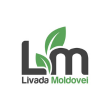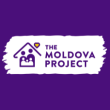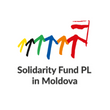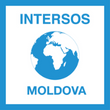Organizații vizate:
Achiziții de bunuri și contractări de servicii
- Detalii
- Categorie: Achiziție bunuri, Contractare Servicii
Evaluation of the Project “Local Civil Society Contributes to Inclusive and Sustainable Economic Development in Moldova”
Informațiile prezentate în articolul de mai jos pot să nu mai fie actuale sau să nu mai reflecte activitățile și programele curente. Anunțul este păstrat în arhivă pentru a asigura transparența și accesul public la informațiile despre inițiativele și proiectele implementate anterior.
Provide EEF with a technical and professional assessment of results, achievements, key challenges and lessons learnt from the implementation of the project.
- Background
East Europe Foundation is a non-profit, non-political organization established in Moldova in accordance with the Law on Foundations. EEF was registered on 03 November 2009 and started its activities in June 2010. Previously EEF operated as a representative office of the Eurasia Foundation in Moldova since 1998.
East Europe Foundation’s mission is to improve the livelihoods of vulnerable women and men and foster participation, decent work, environmental security, equality and non-discrimination, economic prosperity for rural population, unemployed, informal workers, persons with disabilities, Roma and other vulnerable groups.
In 2021 EEF launched the project “Local Civil Society Contributes to Inclusive and Sustainable Economic Development in Moldova”, financially supported by the European Union and co-funded by Sweden. The 36 months project seeks to improve access of disadvantaged women and men to local economic and social opportunities through active involvement of civil society organisations. The action is implemented by a consortium of three CSOs: East Europe Foundation, as the lead applicant and two partners, Keystone Moldova and Contact Centre.
Overall objective of the project: vulnerable men and women are empowered, exploit sustainable economic opportunities, reap the benefits provided by the AA/DCFTA and are better prepared to manage economic risks (such as COVID-19 pandemic) through active civil society engagement.
Specific Objectives of the project are:
SO.1. Mobilized CSOs advocate for more inclusive employment and trade policies aimed at facilitating employment and expanding economic opportunities for vulnerable groups, especially in situations of emergency or pandemics.
SO.2. Empowered CSOs implement new methods of inclusion of vulnerable groups into the labour market by means of offline and online life-long learning, vocational orientation and training, coaching, mentorship, social entrepreneurship, partnerships with local authorities and Territorial Employment Agencies.
SO.3 Business hubs and youth entrepreneurship funds scale up opportunities for vulnerable groups and SMEs through e-learning, training and coaching, business development start-ups, smart-working solutions, digital solutions including e-commerce development.
SO.4. SMEs explore new economic opportunities linked to AA/DCFTA through international outreach, business internships, matchmaking, and business development services.
The total budget of the program was 3,684,291 EUR, with 3,279,019 EUR contributed by the EC and 405,272 EUR by Sweden and own contribution of Partners.
- Objective
Provide EEF with a technical and professional assessment of results, achievements, key challenges and lessons learnt from the implementation of the project.
- Scope of work
The review will consist of document reading, interviews and field study, debriefing meeting, as well as presentation of a review report.
The review should provide answers to the following questions:
- Assess the relevance of the supported project in the country context:
- Did the intervention respond to the needs of the target groups?
- Was the operation in line with EC development policy and strategies?
- Evaluate the efficiency of the project:
- How well was the availability and use of inputs and resources managed?
- How well were the activities implemented? How well were the outputs achieved?
- How well were the Partners involved and contributing?
- Consider the effectiveness of the project:
- How well has the operation achieved its expected outcomes?
- Was the purpose of the project achieved?
- Examine the sustainability of the project:
- What is the viability of the continuation of benefits after the end of the operation?
- What is the level of ownership of the operation by the target group and relevant stakeholders?
- Did the operation contribute to partners' capacity development?
- Assess the extent to which the project paid attention to cross-cutting issues.
- Have practical and strategic gender interests been adequately considered in the operation's strategy?
- Has democratic governance been mainstreamed in the operation?
- Did the operation actively contribute to the promotion of Human Rights?
The project evaluation shall result in written recommendations on the above-mentioned issues. In addition, the expert/review team is encouraged to include recommendations, considered to be of relevance for promoting the aim of the Project Evaluation.
- Approach and method of work
The Expert/Review Team will carry out its tasks through:
- Desk review of project documents and reports;
- Discussions with the staff members and grantees;
- Interviews with partners and stakeholders;
- Field visits to selected sites;
- Consultation meetings.
Timeframe (will cover the following aspects but will not be limited to):
|
No. |
Description |
Number of days |
|
1. |
Finalizing the evaluation design and work plan |
4 days |
|
2. |
Desk review of existing documents |
5 days |
|
3. |
Interviews with staff, grantees, partners and stakeholders |
10 days |
|
4. |
Writing the 1st draft of evaluation report |
5 days |
|
5. |
Debriefing with EEF-M staff and management |
1 day |
|
6. |
Drafting final report |
5 days |
|
Total number of days |
30 days |
It is expected that the evaluation will be conducted throughout March– May 2024 with a preliminary draft report submitted to EEF-M by May 14, 2024. The final report should be submitted to EEF-M no later than May 31, 2024.
- The evaluator/evaluation team
The proposals could be submitted by individuals, teams of experts or legal entities. The evaluator/evaluation team should have relevant evaluation experience in the field of civil society development and program management. The minimum requirements include:
- Experience working in Moldova and/or other countries of the former Soviet Union is highly desirable;
- Minimum three years of related experience;
- Qualified experience working with civil society organizations (CSO);
- Working experience with international organizations and/or European Union would be an advantage;
- Excellent oral and written skills in English and Romanian.
- Knowledge of Russian language will be an asset.
- Selection criteria
- Experience of the evaluator/evaluation team in relevant fields (20%);
- The quality and applicability of methodology proposed (40%);
- The requested price for services (40%).
- Deliverables
The key products expected from this evaluation are:
- The evaluation methodology;
- A comprehensive analytical report in English language. The report should, as a minimum, include the following contents:
- Executive summary;
- Introduction;
- Description of the evaluation methodology;
- Analysis of the situation with regard to the outcome, the outputs, the activities, the inputs and the partnership;
- Key findings (including best practices and lessons learned)
- Conclusions and recommendations
- Annexes: field visits, people interviewed, documents reviewed, etc.
All deliverables will become the property of EEF.
- Application package
The applicant should submit the following documents:
- CV reflecting the relevant experience of the applicant with at least 3 references;
- Examples of previous evaluations performed by the applicant if applicable;
- Short vision of achieving the task, including the evaluation methodology;
- A tentative timetable for preparation, field-work, analysis and finalization of the Report;
- Detailed budget for the evaluation in EUR (total price, daily fee, travel costs, communications, fees, etc.)
- Submission
Terms of Reference can be downloaded here:
The deadline for submissions is 12th of February, 2024. The application should be sent to the e-mail address: concurs@eef.md with “Evaluation Local civil society” in the subject line. All questions regarding this task shall be addressed in written to Ana Ciurac, Program Officer, at ana.ciurac@eef.md.
Only selected individuals or organizations will be notified. Incomplete applications will not be considered.
- BNM angajează expert/ă principal/ă în raportări
- Veo angajeaza un Business Analyst | Transport
- BNM angajează Expert principal responsabil de conformitate
- Audit Associate
- BNM angajează Expert coordonator, Direcția supravegherea altor instituţii










